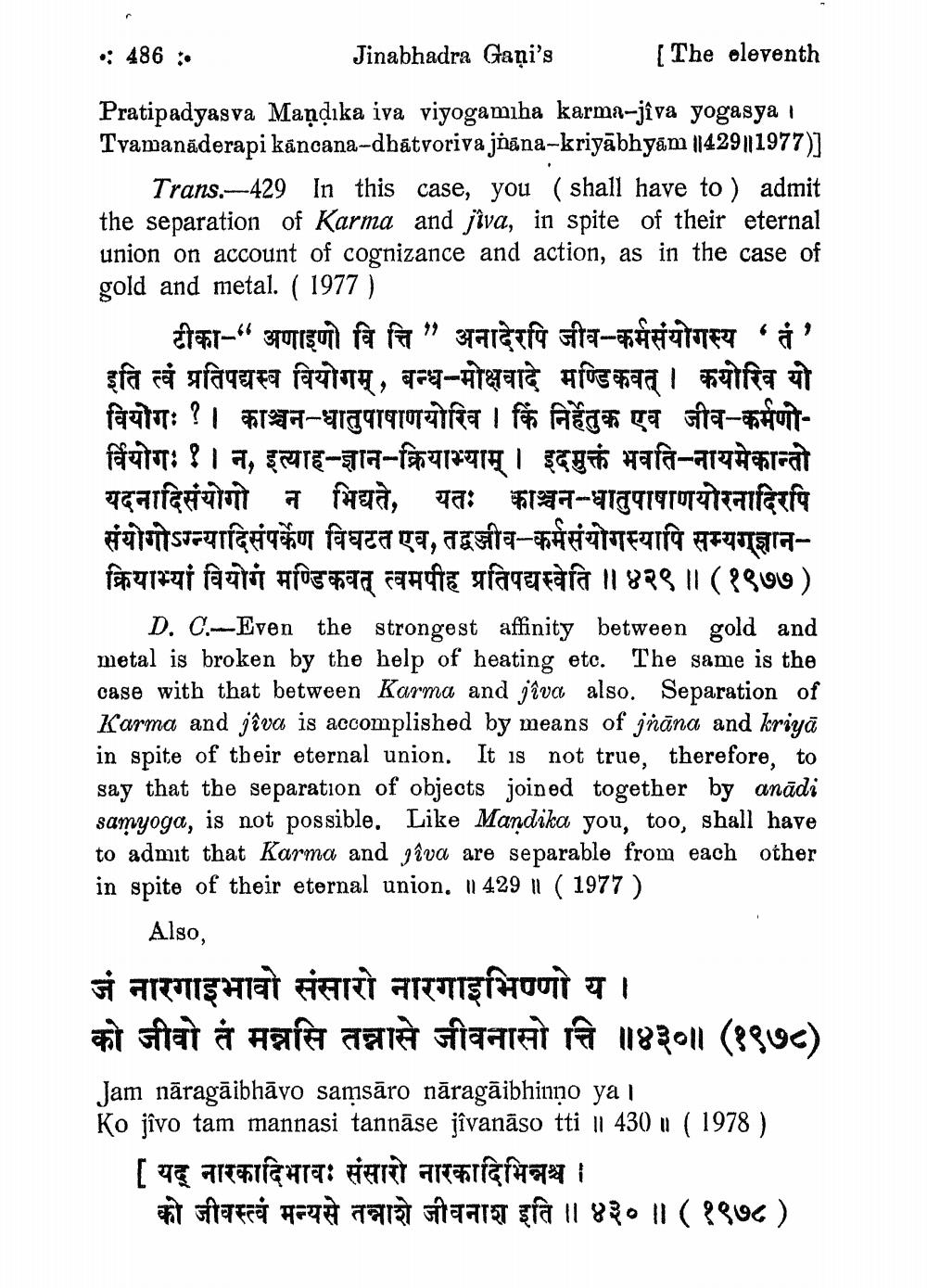________________
•: 486 : •
Jinabhadra Gani's
Pratipadyasva Mandika iva viyogamıha karma-jîva yogasya Tvamanaderapi kāncana-dhātvoriva jñāna-kriyābhyām ||429||1977)]
[ The eleventh
Trans. – 429 In this case, you ( shall have to ) admit the separation of Karma and jiva, in spite of their eternal union on account of cognizance and action, as in the case of gold and metal. ( 1977 )
,
टीका - " अणाण वित्ति " अनादेरपि जीव - कर्मसंयोगस्य ' तं इति त्वं प्रतिपद्यस्व वियोगम्, बन्ध-मोक्षवादे मण्डिकवत् । कयोरिव यो वियोग: ? । काञ्चन-धातुपाषाणयोरिव । किं निर्हेतुक एव जीव-कर्मणोवियोग ः १ | न, इत्याह-ज्ञान- क्रियाभ्याम् । इदमुक्तं भवति - नायमेकान्तो यदनादिसंयोगो न भिद्यते, यतः काञ्चन-धातुपाषाणयोरनादिरपि संयोगोऽग्न्यादिसंपर्केण विघटत एव तद्वञ्जीव- कर्मसंयोगस्यापि सम्यग्ज्ञानक्रियाभ्यां वियोगं मण्डिकवत् त्वमपीह प्रतिपद्यस्वेति ॥ ४२९ ।। ( १९७७ )
D. C.-Even the strongest affinity between gold and metal is broken by the help of heating etc. The same is the case with that between Karma and jiva also. Separation of Karma and jiva is accomplished by means of jñāna and kriyā in spite of their eternal union. It is not true, therefore, to say that the separation of objects joined together by anadi samyoga, is not possible. Like Mandika you, too, shall have to admit that Karma and Jiva are separable from each other in spite of their eternal union. ॥ 429 ॥ ( 1977 )
Also,
जं नारगाइभावो संसारो नारगाइभिण्णो य ।
को जीवो तं मन्नसि तन्नासे जीवनासो ति ॥ ४३०॥ (१९७८)
Jam nāragāibhāvo samsāro nāragāibhinṇo ya
Ko jîvo tam mannasi tannāse jîvanāso tti || 430 u ( 1978 )
[ यद् नारकादिभावः संसारो नारकादिभिन्नश्च ।
को जीवस्त्वं मन्यसे तन्नाशे जीवनाश इति ।। ४३० ।। ( १९७८ )




